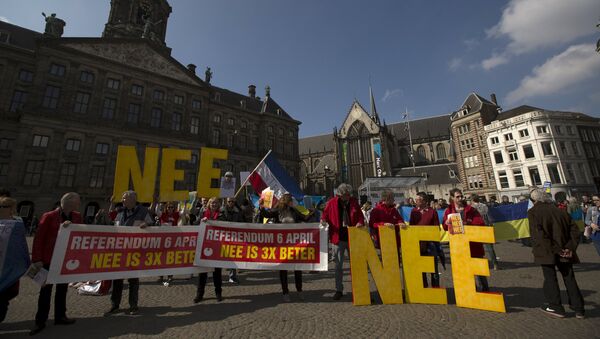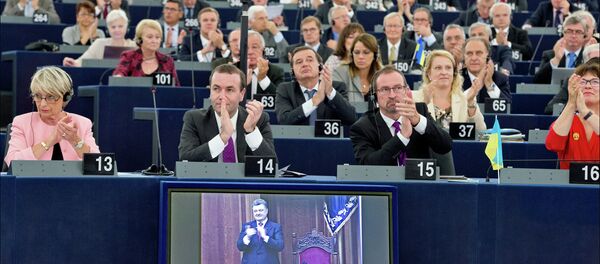Although Wednesday’s referendum is nonbinding, EU officials fear that a rejection by Dutch voters could shift the mood in Europe against Ukraine.
The EU-Ukraine Association Agreement, signed in June 2014, has already been ratified by all of the EU 28 member states.
“Unless there is a major shift in public opinion, which currently shows the no supporters in the majority, the referendum will spell big problems: for the Dutch government, which will have to react to the vote; for the EU, because all EU member states need to ratify the Association Agreement; and for Ukraine, because reformers desperately need this accord as their ally for change,” Dempsey wrote.
And with the exception of European Commission President Jean-Claude Juncker, who warned of the consequences of a no vote, EU leaders have been silent at worst and halfhearted at best.
If the Netherlands votes against the Agreement in a referendum, this could cause a ‘continental crisis’ with the EU, according to the European Commission President Jean-Claude Juncker.
Dutch Prime Minister Mark Rutte thought it wise to duck out from the yes vote campaign.
“He fears that he has little to gain from leading [the yes campaign]. He faces general elections in Spring 2017, and his [conservative-liberal People's Party for Freedom and Democracy] is neck-and-neck with Geert Wilders’ right-wing populist Freedom Party in the race to become the country’s largest [in the Dutch parliament],” argued Rem Korteweg of the Center for European Reform.
Rutte’s party is also divided over the issue.
“If [Rutte] is too pro-European, he will alienate more Eurosceptic voters. If he is too critical of the EU and the agreement with Ukraine, it will complicate his relations with the rest of Europe,” Korteweg added.
The Ukrainian economy is not ready for integration with the EU and its government has not implemented the reforms it promised, making it likely that Dutch voters will reject the EU-Ukraine Association Agreement when they vote in a referendum on April 6, Kiev-based Dutch journalist Stefan Huijboom told Radio Sputnik.
"First of all, we're talking about a country that is at war, there's unrest in the East. European integration just means that the unrest in Ukraine will become an even bigger European problem," Huijboom said.
Meanwhile, Ukraine is mired in an economic crisis, President Poroshenko's promised campaign to fight corruption has completely failed, and trust in the government is at an all-time low.
The Netherlands is the only EU country that has not yet ratified the association deal. The government decided to hold a referendum after more than 400,000 people signed a petition calling for a popular vote on the agreement.
According to the latest opinion polls over 55 percent of the Dutch electorate are going to vote against the measure and only 44.5 will vote for Ukraine’s proposed association with the 28-nation European Union.



